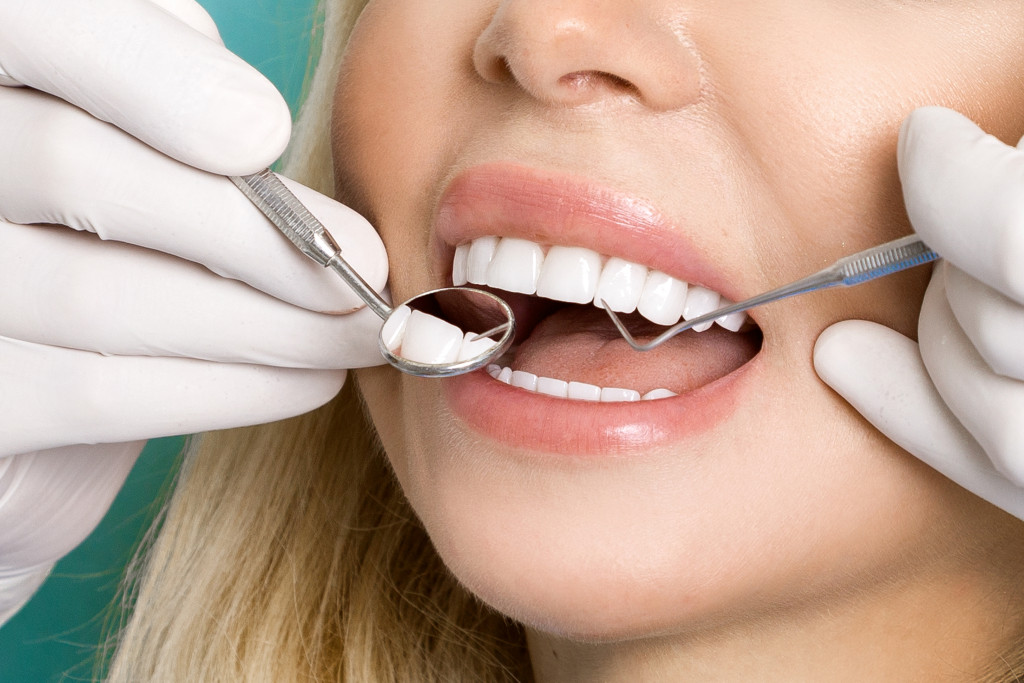Despite the many advances in modern dentistry, dental hygiene is still a difficult subject for most people. Tooth decay and gum disease are two of the most common problems that plague people all over the world. Yet both tooth decay and gum disease can be avoided with proper care and attention to your oral health. To prevent these problems from occurring or worsening, adopt these habits as soon as possible:
1. Brush Your Teeth Twice a Day
Teeth are constantly growing and need to be brushed at least twice a day. One way to make sure you brush your teeth twice a day is to do it while you shower or bathe in the morning and before bedtime. If you don’t like to brush your teeth at night, taking some Listerine and swishing it around your mouth is a good alternative.
The toothbrush you use is just as important as brushing your teeth. If you have sensitive teeth, buy a soft-bristled toothbrush or consider using an electric toothbrush.
2. Floss Your Teeth Every Day
Daily flossing can remove plaque buildup between your teeth and under your gum line where a toothbrush cannot reach. According to the American Dental Association (ADA), daily flossing can reduce your risk of gum disease and tooth loss.
To floss your teeth properly, wrap the dental floss around your middle fingers, leaving about a foot of floss between the hands. Guide the floss between all teeth using a gentle up-and-down motion with your thumb and forefinger.
Gently slide the floss forward until it forms a “C” shape against one tooth, and then move both hands toward that side to form a second “C” against the adjacent tooth. Continue this motion between all your teeth before moving to the next section of floss.
3. Visit Your Dentist Twice a Year
As part of your dental care, see your dentist twice a year for an exam and cleaning. During this visit, they will check for signs of tooth decay and other problems.
They will also discuss with you concerns such as changes in your bite (teeth don’t line up correctly), painful spots on your gums, gaps between your teeth, discoloration or unusual texture on any part of your mouth or gums, and cuts, scrapes, and gum irritations in the mouth. They will also look for signs of oral cancer.
If you have problems with malocclusions (teeth misalignment), see an orthodontist. Orthodontic appliances such as braces help straighten teeth and close spaces between teeth caused by tooth crowding. Some appliances, such as retainers, are worn to prevent teeth from moving back into the space left when other teeth were removed.
4. Avoid Eating Too Much Sugar
Eating too much sugar can cause tooth decay and other cavity-causing problems. One way to reduce the amount of sugar in your diet is to replace soft drinks with water, tea, or coffee without added sugar.
High-sugar foods like candy and cookies should be eaten only as a treat, not every day. Sugar-free gum can also help clean your teeth and freshen your breath. Sugarless gum offers the added benefit of eating fewer calories without causing you to be hungry for other foods soon after chewing.
Combat saccharine cravings with natural sugars found in fruits, vegetables, and whole grains. They provide nutrients that promote strong teeth and gums, such as calcium and vitamin C.
5. Watch Your Stress Levels
Although stress may not cause dental problems, it can increase sensitivity in teeth already damaged by sensitivity or decay. You can try relaxation techniques, such as breathing deeply or listening to calming music.
Some studies have shown that massaging your gums several times daily for one minute may help reduce sensitivity. If you are under increased stress levels, consult your dentist about other options to minimize sensitivity before it becomes severe enough to cause pain when eating certain foods or drinking hot or cold beverages.
6. Exercising Can Help Reduce Tooth Decay
Exercise can boost your immune system, which helps you fight off infection and tooth decay. It also reduces the risk of being overweight or obese, which correlates to higher chances of having gum disease.
Moreover, exercise increases blood circulation that can deliver more nutrients to your gum tissue for keeping teeth healthy. Physical activity may cause you to salivate more, which helps clear food particles and plaque from your mouth.
If you haven’t exercised before, some excellent workout programs include walking, running, biking, yoga, and swimming. Alternate cardio with strength training at least twice a week.
Maintaining a healthy mouth is important for overall good health. Fortunately, it is not complicated. With these simple tips, you can avoid oral problems and keep your bright smile for a long time.

